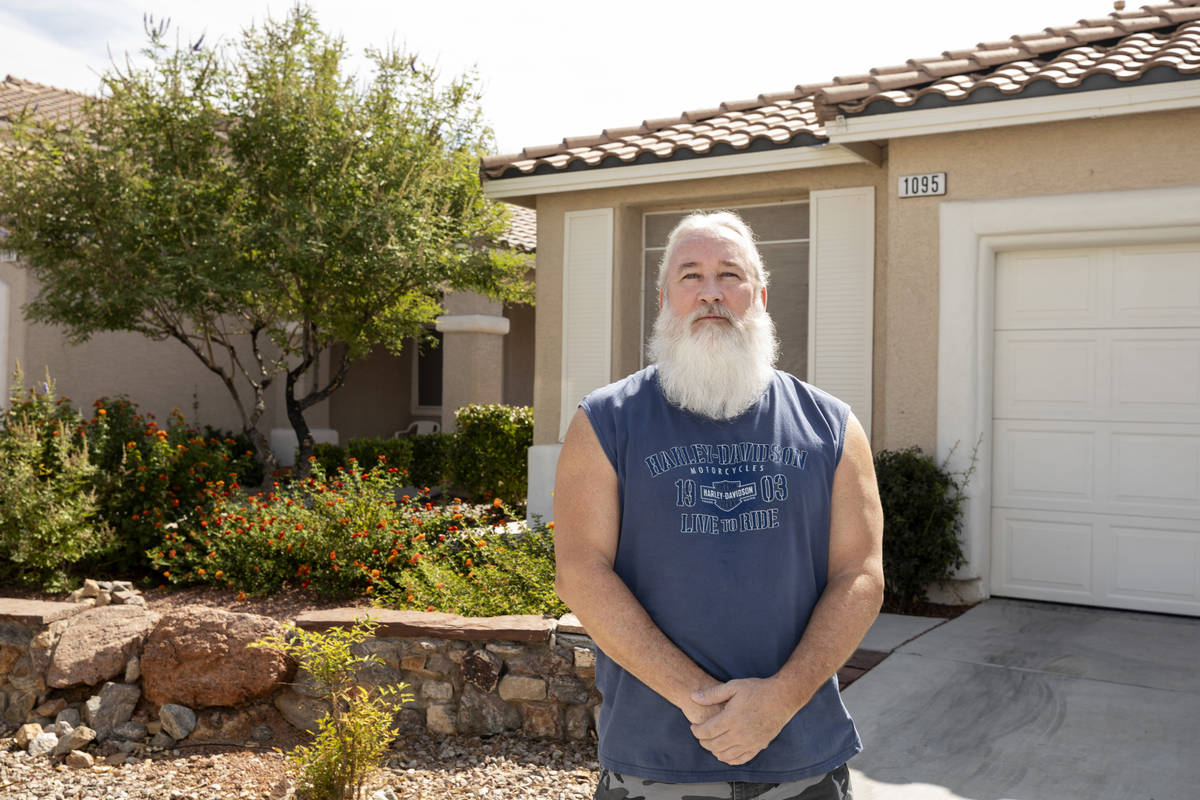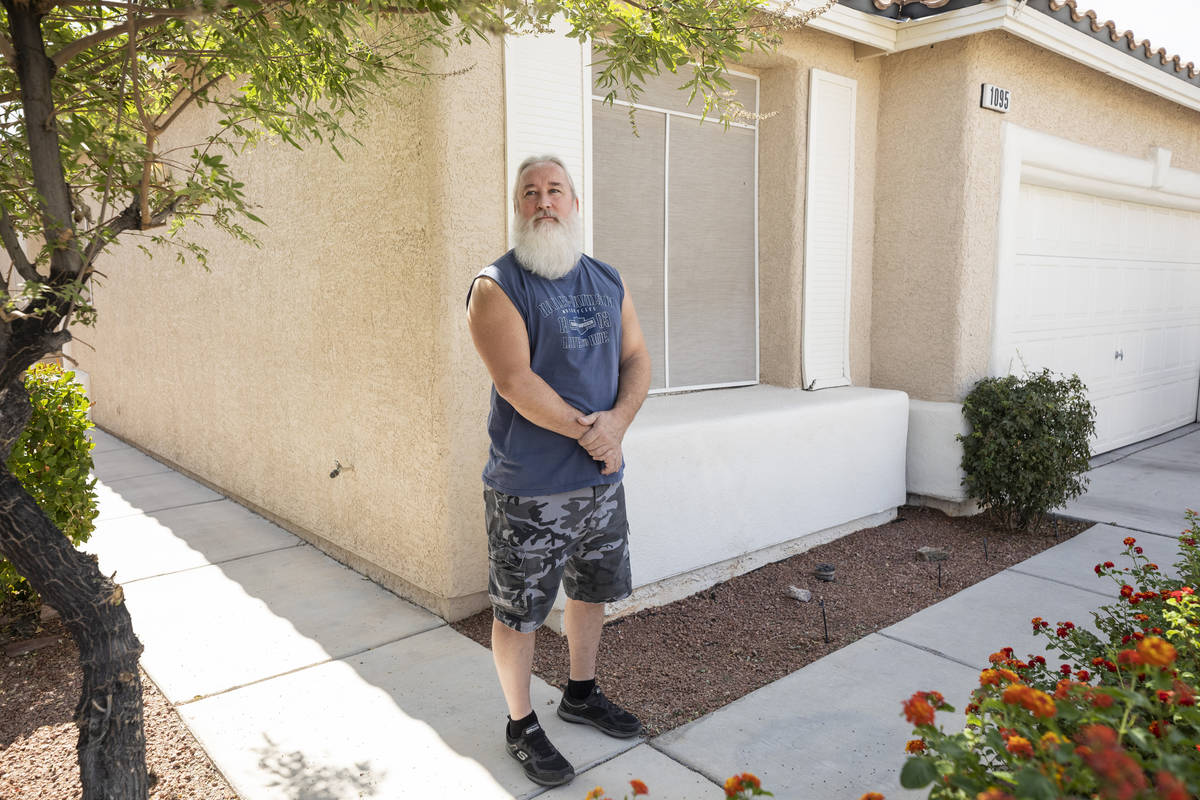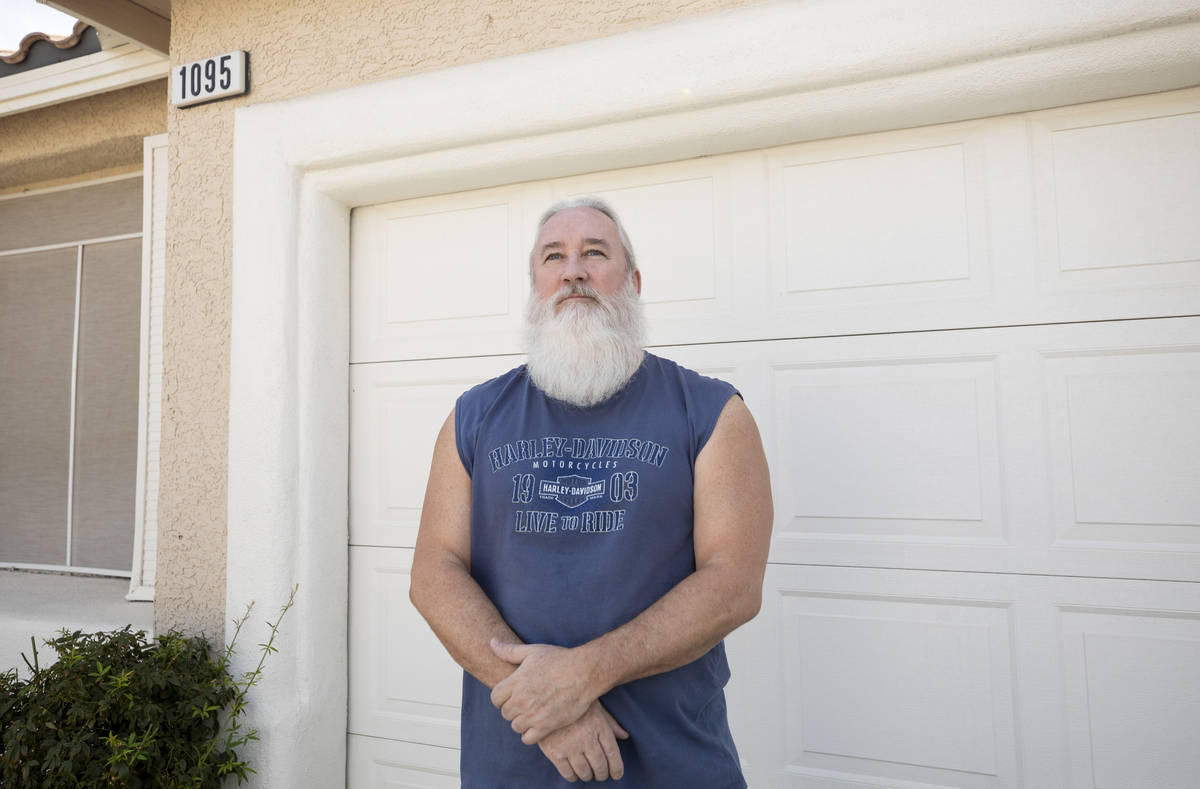Landlords, renters to face missed payments as eviction moratorium lifts
Las Vegan Josuah Smith was laid off from his job last month and owes his landlord, Siegel Suites, $2,500. He’s worried he will soon be evicted and, at worst, have his debt sent to collections.
Bob Smith requested a forbearance on his mortgage this summer after his tenant in Silverado Ranch failed to pay five months of rent, totaling $6,500. He would like to avoid the collections process but is concerned he will never see the funds.
The tale of two Smiths highlights what many real estate experts describe as a worst-case-scenario in a rental market slowly showing signs of distress — collections.
Gov. Steve Sisolak’s eviction moratorium is set to lift Thursday, and without an extension, collection agencies may get a tsunami of work as landlords try to recoup missed payments.
Out of 50 metropolitan areas, Las Vegas had the largest increase of tenants failing to pay their September rent. Data from RealPage Inc. found 10.6 percent of renters missed last month’s payment, up from 4.1 percent year over year.
Past due
Rent payments across the country for multifamily properties have remained fairly stable despite the economic upheaval caused by the novel coronavirus — largely because of state eviction moratoriums.
The National Multifamily Housing Council found 92.2 percent of market-rate apartments received full or partial rent as of Sept. 27, down 1.5 percent from the same period last year. The survey measures 11.4 million units of professionally managed buildings across the country.
Nevada’s eviction moratorium set to expire Thursday prevents landlords from evicting a tenant for nonpayment of rent. It was initially set to expire Sept. 1, but in a last-minute announcement, Sisolak extended the moratorium by 45 days.
Smith, renter at Siegel Suites, was laid off in August from inventory and data collection company RGIS Inventory Specialists.
“I was furloughed and RGIS brought people back to work, but I was only getting like a day or two days a week,” he said.
The few hours Smith worked at RGIS coupled with his weekly unemployment benefits allowed him to afford his monthly rent, until he was laid off.
“I was doing fine, but now I’m broke and down to only my unemployment,” he said. “On top of that, I don’t receive food stamps anymore because they said I made too much before, so now I’m struggling to buy food and to get to places to get food.”
Smith, who is receiving less than $1,000 a month in unemployment benefits, said he’s missed September and October’s rent payment and is worried Siegel Suites will try to evict him after the state’s moratorium lifts, despite his recent attempts to make partial payments.
Should Smith be evicted and he is still unable to pay, the next step would be collections, according to Terry Moore, attorney at Marquis Aurbach Coffing.
Moore said landlords and property managers typically have a go-to collection company in their Rolodex.
“You just refer the account to them, but a collection company takes a percentage of whatever they can recover,” he said. “Collections are going to try and reach out to the tenant, but realistically speaking, if somebody has refused or been unable to pay rent for six months, is there any real chance that landlord is going to be able to recover any of that money?”
Moore added that if a tenant declares bankruptcy, the “ultimate backstop,” then a landlord will never get that money.
“It’s going to be the ultimate game of chicken that tenants are going to be playing with their landlords,” he said.
Nevada State Apartment Association Executive Director Susy Vasquez said though property management firms pass off a tenant’s debt for a collection agency to deal with, it could overburden agencies once state and federal moratoriums end.
“Is a collection agency really going to want to take on all of those accounts?” she said, adding that it could mean higher fees for landlords as agencies will probably have to work harder to reach more people.
Vasquez said landlords with a smaller number of units would need to go through small claims court, and “nobody wants to do that.”
‘Sheer principal’
Smith leases 10 rental homes split between Pahrump and Silverado Ranch and said he is planning to take his troublesome tenant to small claims court.
“Normally, I wouldn’t do this process,” he said. “It’s just this one tenant. I’m lucky that all my tenants didn’t (miss rent).”
The tenant stayed at his rental in Silverado Ranch since 2016. Smith said when Sisolak ordered a temporary halt on evictions in March his renter stopped paying rent the following month.
He quickly tried contacting the tenant several times by phone, email and written notices to discuss a payment plan, but “she wouldn’t talk to me (or) discuss payback.”
Smith said the tenant said she would move out Aug. 15, but when he arrived at the property July 31 to hand her a repayment form he discovered she had already vacated the property.
“I’m out more than $6,500 because I had to pay for all the carpet cleaning, repaint the walls. There was drywall damage from the holes and the dishwasher was broken,” he said.
Smith had savings to cover mortgage payments but was able to request a forbearance with his mortgage company, adding that other landlords might not have that luxury.
Smith is looking to have a judgement set against the tenant, who recently sent him a text message stating that she plans to file for bankruptcy — meaning Smith will never see the $6,500 owed to him.
“I can’t let them go through life thinking there’s no recourse,” he said. “I’m going to file a judgement just over sheer principal, and it costs me money, but I don’t care. She’s going to have to pay money to file for bankruptcy or I’ll see her in court.”
Short reprieve
Some larger property groups have come up with creative ways to avoid entering into rental disputes with tenants altogether.
The Calida Group, whose properties include the Elysian brand, rolled out a program last month offering up to four months of rent forgiveness if rental debt was accumulated between April 1 and Aug. 31. Eligible tenants with a high rent balance would need to sign a lease extension for a certain number of months, and Calida said it would not increase a tenant’s rent, giving the tenant an added incentive to stay.
Eric Cohen, Calida Group’s managing director, said it is already seeing positive feedback.
“We wanted to figure out a way that helps them and helps us in return,” he said. “Our lenders are happy, and the tenants seem to be pretty happy as well.”
Cohen said delinquencies across its properties have risen only slightly. Its delinquency rate in April was 1 percent, in May it was 2 percent, and in June was 3.5 percent.
He said with the state’s unemployment rate hitting an all-time high this year he expected a higher delinquency rate but is “happy with where we’re at.”
Before the coronavirus’ impact in Nevada, Calida’s tenants would receive a notice about their missed rent payment and try to work with the tenant. If the eviction process needs to start it would typically end within 30 days. After a tenant is evicted, his or her account is sent to collections.
Cohen said it is “hit or miss” when it comes to the success rate of collecting back rent but pointed out tenants also suffer in the long run.
“If I do a credit check on a potential tenant, and if they have nonpayment history, they can’t rent at one of our communities,” he said.
While things are currently manageable, Cohen said things could spiral downward for Las Vegas’ rental market.
“If the government doesn’t extend unemployment benefits, then I’m assuming it could get worse,” he said.
Contact Subrina Hudson at shudson@reviewjournal.com or 702-383-0340. Follow @SubrinaH on Twitter.
National eviction moratorium
Landlords are waiting until Gov. Steve Sisolak's eviction moratorium lifts Thursday to send eviction notices to tenants who have not paid rent.
But the flood of notices anticipated on the doors of struggling renters might be slowed, or stopped, by a federal order. There's one catch, though: Tenants have to opt in.
The order was issued by the Centers for Disease Control and Prevention and stops most residential evictions until Dec. 31.
According to the CDC, tenants are eligible if:
— They have used their best effort to obtain all available government aid for rent or housing.
— They either expect to earn no more than $99,000 during 2020, were not required to report income to the IRS in 2019 or received a stimulus check under the federal CARES Act.
— They are unable to pay the full rent because of substantial loss of household income, reduction in wages or hours, layoffs or extraordinary out-of-pocket medical expenses.
— They are making a best effort to submit partial payments of rent as close to full payment as their circumstances permit.
— They probably would be rendered homeless or forced to move and live in close quarters in a shared living setting if evicted.
Tenants can find the declaration form on the CDC's website.
Those who are not considered eligible under the order are renters:
— Engaging in criminal activity while on the premises.
— Threatening the health or safety of other residents.
— Damaging or posing an immediate and significant risk of damage to property.
— Violating any applicable building code, health ordinance, or similar regulation relating to health and safety.
— Violating any other contractual obligation, other than the timely payment of rent or similar housing-related payment, including nonpayment or late payment of fees, penalties, or interest.

























